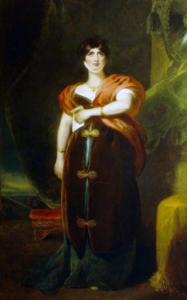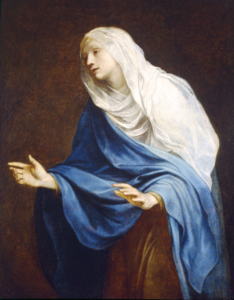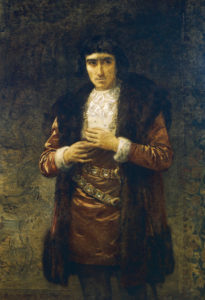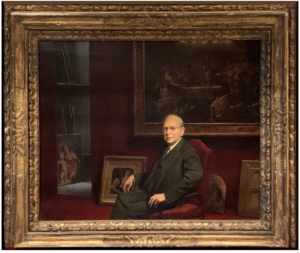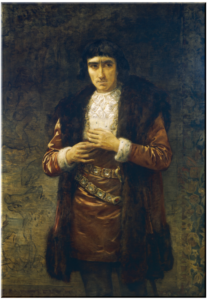Julius Weitzner
Oil on canvas
John Koch
American, 1909-1978
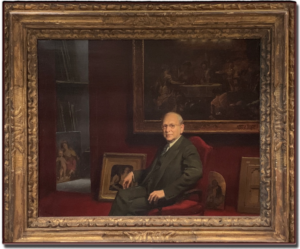
The influence of an individual can be far reaching, if not profound. Just as the old masters’ legacy lingers with us even today revealing the technology and culture of previous ages, so the legacies of other masterful individuals endure in collections near and afar.
Dealers in the early to mid 20th century played a significant role in the development of many private and public collections which are highly respected today. At that time, the large auction houses were closed to the public, and dealers were the only buyers permitted. Dealers connected with private collectors and museum directors for nurturing their interests in making acquisitions for their growing collections.
One of the dealers whose impact is still felt is Julius Weitzner. Of Jewish birth and Hungarian roots, he was a concert violinist with a PhD in chemistry. He began his career as an art dealer in the late 1920s, when he opened the first of a succession of galleries in New York. He quickly gained a reputation for his discerning eye in spotting undervalued paintings and was known to impatiently clean dirty canvases in order to discover the artist, who many times proved to be significant. M&G’s founder, Bob Jones Jr., once stated in a media interview that Weitzner’s “wife used to say that Julius made his living selling unsalable pictures.” He died at the age of 90 in January 1986.
Weitzner was instrumental in painting acquisition for many collections, such as the national galleries in Washington and London, and the metropolitan museums of Philadelphia, Boston, Detroit, Cleveland, Birmingham, and Raleigh. Over a period of three decades, he sold more than 75 Italian paintings to the Bob Jones University collection, now the Museum & Gallery at Bob Jones University.
It is disappointing to find that little is recorded about this talented man, but perhaps the perspective of M&G’s founder may provide insight into the significance of Weitzner’s influence both in broader terms and in M&G’s own setting. In a letter to Weitzner himself dated June 1977, Bob Jones, Jr. expressed his opinion that Julius was the “best expert, the most cognizant . . . most successful dealer in the world.” In an interview with the Washington Post, printed Sunday, August 26, 1984, Dr. Bob prized Weitzner as “a great friend, almost like a brother.”
Just two days following Weitzner’s death, Dr. Bob’s letter to Weitzner’s widow Ruth warmly comforts, “Julius was one of the dearest friends I ever had . . . He was a remarkable man who had a most profound influence in getting me interested in paintings and involved with them in what has been a 35-year experience. I always trusted his knowledge more than any other man’s, even the so-called ‘experts.’ He is going to be missed by many people; but aside from you and [your son], I am sure no one will feel his loss more than I.”
M&G has been given a vivid reminder of Weitzner’s friendship with and influence on our collection. Appropriately hanging in the Weitzner gallery (gallery 10) is a beautiful portrait by John Koch of the dealer surrounded by his love, Old Master paintings. The old master painters influenced the development of art, while dealers like Weitzner heavily influenced the landscape of today’s collections and museums, especially our own.
Erin R. Jones, Director
Published in 2013


